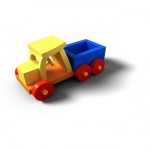 Waleed buys stuff worth 300 pounds from a toy shop.(The toys were sold with zero profits)
Waleed buys stuff worth 300 pounds from a toy shop.(The toys were sold with zero profits)
Waleed gives him 1000 pound note. The shopkeeper gets the change from the next shop and keeps 300 for himself and returns 700 pounds to Waleed.
Later the shopkeeper of the next shop comes with the 1000 pound note saying that it was a fake note and takes his money back.
How much LOSS did the shopkeeper face?
Give Your Answers Below in Comments Section – Click Here

Owner of the Toy Shop lost 700 pounds and his Toy (Worth 300 Pounds)
And he gained a 1000 pounds fake note as a gift from his fake Customer.
1000 plus the toy price.
1300- one thousand note plus three hundred comodity
loss to the shopkeeper is 1000 pounds because the net result in the transactions is the buyer has exchanged his fake 1000 pounds for 300 pounds worth of toys and received 700 pounds real cash from the shopkeeper
I agree with Zeena, that total loss to the merchant is 2000 ponds.
He lost 1000
The Shopkeeper took a fake 1000 pounds and gave out the toy worth 300 pounds and a change of 700 pounds. The exchange he had with his neighbor has no effect on the transaction since he only changed the fake 1000 pounds with genuine notes.
The shopkeeper lost in all One Thousand Three Hundres Pounds (£1,300). That is the One Thousand Pounds he returned to the next shopkeeper and the Three Hundres Pounds which is the cost of the toys.
loss is 1700 + toy
1700 pounds
2000 Pounds
the shopkeeper total lost was 1000 pounds
and to clarify the trick it is as if the shop keeper took 1000 pounds false money and gave the cheater in exchange 700 pounds and a toy worth 300 pounds true money.
it makes no difference whether he takes the 1000 pounds from his neighbour or from his bocket its all the same. it is just a trick.
1000
Zeena is right, total loss 2000
The shopkeeper lost 1000 pounds.
The shopkeeper faced 1000 pound loss.
The net loss is 1000 (cost of articles and amount paid to Waleed). There is no loss in the transaction with the neighbour. Ignoring the fake currency, it would amount to Waleed borrowing 1000 which he returns.
700 in Cash 300 in Toys! 🙂 😉
the trick of the riddle is, the shop is a toy shop , how come waleed buys food stuff from the toy shop?
its tricky riddle there is no note of 1000 in pound.
the highest note in pounds is of 50 pounds.
1700
2000 loss!!!
He loses 300 for the sale plus 700 against the cheque.. Too bad.
HAPPY NEW YEAR AND KINDEST REGARDS. mnawazish.
Let us assume there is no note of 1000 thousand because the note was fake. the shopkeeper-1 borrowed 1000 from other shopkeeper-2 then shopkeeper-1 gave 700 + toy of 300 to waleed that is equal to 1000. Later shopkeeper returned 1000 to shopkeeper 2.
1000 pounds only
700 (he returned)+300 (cost of the toy)
One Thousand only
(700+300(cost of the toy))
Two thousand
He lost 2000pounds as follow 1000 pound return to whom xchange shop +700 pound to whom buy the toys+ 300pound the cost of toys
Let’s make it even simple to understand.
The neighbor gave original 1000 & took away original 1000, so this proves he didn’t get anything extra nor did the shopkeeper pay him any penny extra.
Now whatever loss the shopkeeper incurred was between the customer & shopkeepers transaction.
Simply the customer paid him 1000 fake means ‘zero’ however ruin the shopkeeper of the toys Cost Price: 300 + an extra 700 original ultimately from shopkeeper’s pocket, the customer received a benefit of 1000 in total & an equivalent loss to shopkeeper.
Ultimately, the general calculation is because the fake note is of 1000 the loss as well will be 1000.
He lost 1000 pounds in cash and toys worth 300 pounds.
1000
1700 pounds
Unfortunately Wrong answer.
Please see Editors’ comment for the Right answer.
Very Simple.
Loss is 1300.
Buyer gave shopkeeper 1000 fake note. So loss at the moment is=1000.(a)
Toys which buyer took with him so shopkeeper’s toy’s loss=300 (b)
Total loss of shopkeeper (a) + (b) = 1300.
1700 pounds
1700 pounds and not 700 pounds
1000 is the correct answer:-)
700 pounds
1300
Ans=1000
Explanation: from the next shop the shop keeper got change for 1000 original.
he kept his original 300 for the toy and balance 700 original notes given to buyer. so upto now nobody loose anything.
now the next shopkeeper says the note was fake and he replaced it with original 1000.
so he lost only this 1000.
Exactly ! That’s the right answer and right explanation. 🙂
V Good Ginachandran
The shopkeeper returned the 1000 to his neighbor + the 700 to the shopper + the 300 value of the toys bought
Total 2000 £
On a second thought I think that the real loss is the 1,000 pounds that the shopkeeper paid to his neighbour as the 700 pounds is already part of these 1,000 pounds.
I agree with Zeeshan. The Shopkeeper loss is 1,700 pounds
The shopkeeper “cash-out” = 700 pounds plus 1,000 pounds = 1,700 pounds.
The doll was exchanged against 300 pounds, so zero loss here.(Cash-in = Cash-out(doll)).
there is no such currency note of 1000 so the lose ll be for sure 0…
S I M P L E :
ANSWER IS RS. 1,700/-
Solution: 700 that was returned to the buyer + 1000 extra given back to the shopkeeper
Only 300 pounds. Nothing more and nothing less.
After more consideration the shopkeeper lost only the £1000.
it is true that at any time the shopkeeper did not put his hand in his own kitty except at the end to give back the £1000 to his neighbor.
he sold the toy for £300 which he got for real. That cancels out the loss on the toy. He gave the guy back £700 which is legit, and all this out of the fake 1000.
it is only when he has to give back the 1000 to the neighbor that he actually puts his hand into his kitty to take out money. So he lost 1000 only.
2000 pounds
Please read the explanation of the answer properly and comment if you think it is wrong. The answer is 1000 pounds
Let us assume:
The Shopkeeper selling toys is SK1
The shopkeeper giving change is SK2
Waleed buys toys worth 300 pounds and gives SK1 1000 pounds(fake note)
*** SK1 loss right now is 300 pounds (toy price)***
SK1 gets 1000 pounds change from SK2 {SK2 has the fake note}
SK1 gives 700 pounds to Waleed
*** SK1 retains 300 pounds which equals toy price (that he had lost before) therefore SK1 loss right now is 0, agree ? ***
SK2 asks SK1 to give back his 1000 pounds as the note was fake.
Therefore SK1 gives 1000 pounds from his pocket thus resulting in a loss of 1000 pounds
1000 pounds which he gave to the next shopkeeper. whereas the amount of the toys is retained
Shopkeeper had to face a loss of 2000 pounds.
Let us have a look on following calculation..
1. Waleed was returned remaining 700 pounds by shopkeeper and stuff was worth 300 pounds. Total is 1000 pounds, keeping in mind that fake note was replaced with original one from 2nd shopkeeper).
2. 2nd shopkeeper returned 1000 pounds note saying that it is a fake. So, analyzing the whole scenario, 1st shopkeeper had to bear loss of 2000 pounds, 2nd shopkeeper was paid back original 1000 pound note, waleed was returned earlier 700 pounds and stuff was worth 300 pounds. You get that.
Thank you for the detailed explanation. Could you please also have a look at the explanation that is provided above ?
great, i just forgot about the toy cost. yes 2000 not 1700.
theoretically 1000 EGP
practically 0 because there is no 1000 Pound note
1300
LETS ANALYZE IN A SIMPLE WAY!
*SK1 — Shop keeper dealing with Waleed
*SK2 — Shop keeper dealing with SK1
Waleed pays 1000 (fake note) to SK1 to buy toys worth 300
SK1 asks for the change of 1000 (fake) from SK2.
SK1 received the change for 1000 (Original)
SK1 returns 700 (original) to Waleed, retains 300 (original) with him
SK2 asks for 1000 (original) back because the previous one was fake
Keeping the above scenario in mind, we can come to the conclusion that:
700 (original note) given to Waleed (Loss for SK1)
1000 (original note) given to SK2 from his own pocket (Loss for SK1)
300 (original note) he retained with him as a cost price for the toy (No profit no Loss for SK1)
Total Loss: 1700
Hope this is the simple Explanation to reach our Destination to the Solution after all Confusion 🙂
Total loss is 2000
The toys 300
paid Waleed 700
paid for the neighbor shop 1000
total 2000